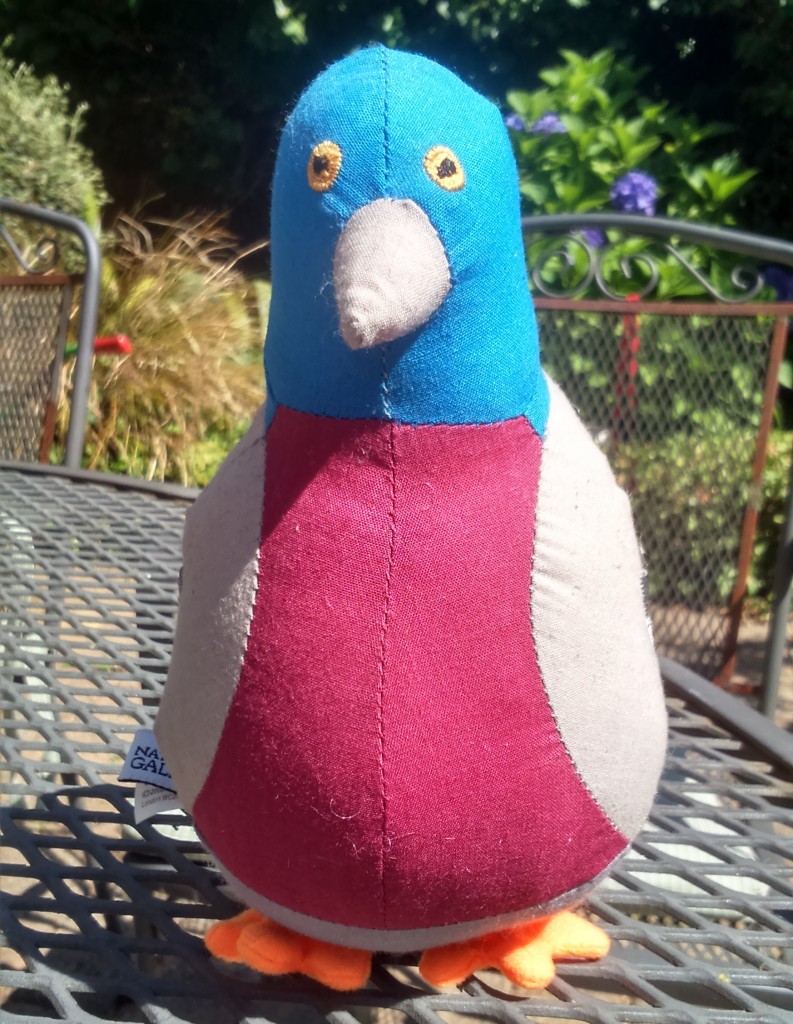Pigeons, pigeonholes, and public engagement
A number of years ago, as I was slogging my way through my massive PhD prep reading list, I came upon a brilliant article by the Chopin scholar Jeffrey Kallberg. In it, he takes inordinate time and care to address the question of genre: how we define a musical genre, how many characteristics a musical work needs to fit into a specific genre box, and so on. The conclusion he comes to is that we shouldn’t think of genres as a neat row of little boxes into which things are shoved depending on their specific features; rather, it’s a communicative process in which the composer, performer and audience all use the contextual knowledge they already have to identify similarities and differences with other pieces they know. And he quotes the equally excellent literary critic Alastair Fowler. ‘Genre,’ Fowler says,’ is much less of a pigeonhole than a pigeon.’ Communication, not categorisation, is the key. I say this with authority because, having absorbed all of this information and included it in a research seminar I was invited to give, I even bought a pigeon to take with me as a presentation prop. His name is Ptolemy. And here he is.

I can explain Ptolemy’s rather dazed expression. He (and I) have just been reading a string of pieces in Times Higher Education about recent studies to do with public engagement in the university sector. What initially caught my eye was, in effect, the end of the story – a piece from Andrew Maynard, of the University of Michigan, considering the role of public engagement in US universities. This was in response to an earlier piece about the same topic in the UK… and this, in turn, was based on a recent study carried out by Richard Watermeyer, in which he interviewed university staff from a range of institutions and disciplines about ‘the impact of public engagement in higher education on academic identity, research practice and career progression’.
Leaving aside the fact that Watermeyer’s paper is written in rather dense, occasionally intractable prose which seems somewhat ironic given the nature of his subject matter (at least the article is freely available), his findings are sobering but, for me and Ptolemy at least, unsurprising. In general, those he spoke to considered public engagement work to be detrimental to their career progression and have a negative impact on their academic identity. Despite ‘impact’ being a factor in the most recent Research Excellence Framework, the focus remained on leading research inside the institution, not seeking platforms to share it externally. Indeed, one interviewee reported a sense in his institution, when public engagement was raised in discussion, that ‘we don’t want the enthusiasts to take over.’
At this point, dear reader, I’m afraid I laughed out loud. Heaven forbid that we want someone to be enthusiastic about their work, you know, at people who don’t already know about it. What a notion! As a staunch defender of the ‘amateurs’, another word that has suffered much bad press over the years, I stand too beside the ‘enthusiasts’. It is patently obvious to anyone with functioning braincells that we need them in order to enthuse learners and social groups of all ages and backgrounds, because these university researchers are doing work which will either directly affect our lives through practical/virtual/scientific/industrial application, or will be enriching our culture and awareness of ourselves in the world. If we don’t manage this as a society, we cannot justify the purpose of higher education and research, or why any funding and support should be given to it. Rocket science this is not.
However, there is more to say, and a note of caution to be sounded. There are plenty of academics who do engage with the public, because they consider it important and enjoyable work. They usually do this in spite of, rather than with the support of, their institutions, and that has to change. Some of us get to the point where actually, we decide that it is public engagement, above all, that we wish to prioritize in our careers – and my solution to that, at least, was to absent myself from a substantial academic affiliation and become a free agent. For those who stay in the system it is clear that, if presented in the wrong way, public engagement work can seem like yet another hoop which academics are required to jump through in order to earn their keep. That is also wrong – and, crucially, this is not work for everyone. Some people are great at speaking to a general audience. Some are not too bad and can learn to be better (and I take great pleasure in helping people get there, if they want to). But for some, it’s not their thing. They are superb at communicating with their peers and their postgrads, but not with school groups. So trying to force them in the name of institutional necessity, career advancement or national assessment is counterproductive in the extreme, for them and their audience(s).
I have a sneaking suspicion that there is, in the heads of those who seek to measure ‘excellence’, the image of a beautifully-shaped pigeonhole containing an academic who gets top National Student Survey feedback, publishes world-leading research, completes all their paperwork on time and gives weekly talks at their local museum/science group/history circle. Guess what? That’s not most of us. Most of us are really good at some things. A system which either seeks to quash those hungry to share their work by suggesting it’s a waste of time, or forces those to do something that they find nigh-on impossible, is just plain stupid. Time we all took a leaf out of Ptolemy’s book (thanks to Jeffrey Kallberg and Alastair Fowler): pigeons please, not pigeonholes. Stop stuffing scholars in boxes. Communication, as ever, is the key.
